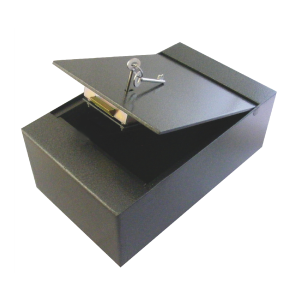The role of safes in business security
Security is a high priority issue for a business. Any employer has a legal duty to protect its personnel and to provide a safe and comfortable working environment first and foremost, so it has to invest in security to ensure that. But in terms of business continuity there is also a need to invest in security, and security safes play an important role in that.
Naturally safes are a secondary form of defence in terms of business security. Your primary concern is securing a building and providing access control systems along with other security controls such as CCTV and intruder alarms, so that unauthorised personnel cannot enter the building. Only if this is breached can people access a safe. But businesses need a safe for internal security reasons as well as external reasons, such as safeguarding confidential materials and information, and of course for securing any cash that is left on the premises. So safes are required for different reasons, and here we are going to look at different types of businesses and try to understand why different types of businesses need a safe.
Different security needs for different types of business
Cash and valuables – Keeping cash and valuables secure from theft is the most common reason for a business having a safe, and while many businesses which have traditionally handled cash now use contactless transactions, there is often still a mix where cash is handled also. So these types of businesses would be retail, hospitality and leisure operations, where cash is a major transactional currency and hence large volumes can be accrued over the course of a day. In between taking this cash to the bank, a business will need to store it securely in a safe. Regardless of the type of business, it is common to have a ‘petty cash’ safe on the premises. So this is a small amount of cash which can be used for small purchases and expenses and as a float for things like milk and sandwiches, or for internal competitions or initiatives like lottery syndicates and birthday/leaving collections. This is usually a relatively small amount of cash, but sometimes can build-up to a significant amount for a short period, but regardless, it always needs to be kept safe, particularly because internal personnel are likely to know where it is kept. small portable cash safes are ideal for being locked away in a desk drawer, for example. Valuables with similar storage requirements may include communally-used laptops, cameras or smartphones, or keys for a pool car.
Data Protection – In the 21st century every business has to have strict procedures and protocols relating to data protection. This is a person’s individual data, be it salary, vehicle or contractual details or other human resources related issues such as disciplinaries, grievances or appraisals. Legally, any personal data, whatever it is related to, needs to be protected so it isn’t shared or accessed by another person, or shared and distributed externally. This is usually data stored electronically on USB sticks, hard drives or other digital mediums, but can also include physical paperwork and documentation. An individual has a right to expect this data to be stored securely and only accessed by authorised personnel, so a safe is ideal for this purpose. In a healthcare setting this personal information relates to a person’s medical history and while this can be shared and accessed between some medical professionals, there will be levels of authorisation and certainly, patient confidentiality means this information is not shared publicly, even sometimes with family members. So hospitals, doctor’s surgeries, care homes and other healthcare settings need to have safes and authorisation procedures in place to control this type of security.
Intellectual property – Intellectual property (IP) is the results of a creative process or unique information that belongs to a business and needs to be protected in order to maintain a commercial advantage. So for any type of business this is the details of brand names and logos, but also copyrights, designs, trademarks and patents the business may hold. These may uniquely identify the details of its products and services, which is information it wouldn’t want rival businesses to get hold of. For production or manufacturing businesses, this type of IP information relates to product specifications and materials processes, ie. unique production techniques. So this data tells someone everything about how a product is made, and hence is highly confidential, often internally as well as externally. Again, this data could be digital and electronic data or it could be hard, physical paper documentation. But there should be internal authorisation systems which identify and control who can access and authorise the release of such information.
Legal documentation – Many businesses will need to retain legal documentation relating to customer contracts and employee contracts, but this is particularly relevant to solicitors. A legal business will need to store property deeds and wills as a matter of course, but may also deal with other documentation that needs to be signed and stored safely for long term use. As an example, this can include lasting powers of attorney or pre or post-nuptial agreements.
At MB Direct we have safes for all types of commercial use, including the safe storage of petty cash, larger volumes of cash and safes specifically for storing digital data mediums. These safes are specially constructed to withstand the use of magnetic force, which can be used to erase digital data externally. Many of our commercial safes are fire-protected also. Check out our full range of business safes and order online today.